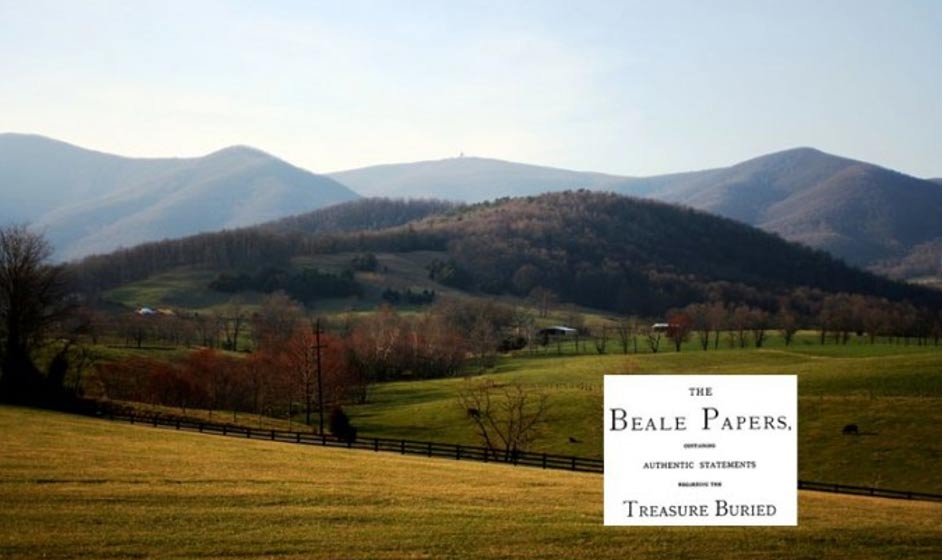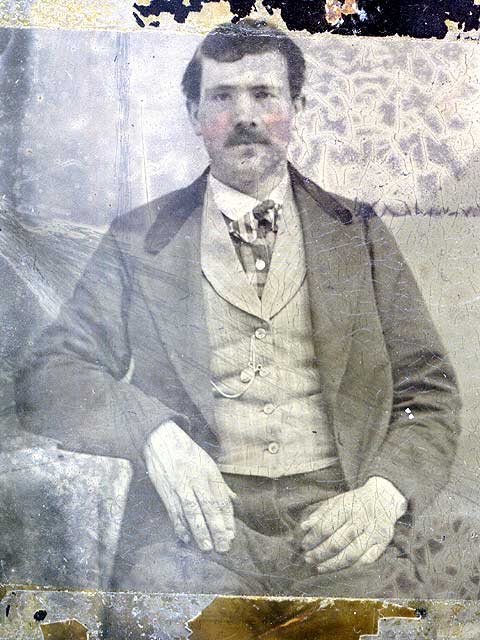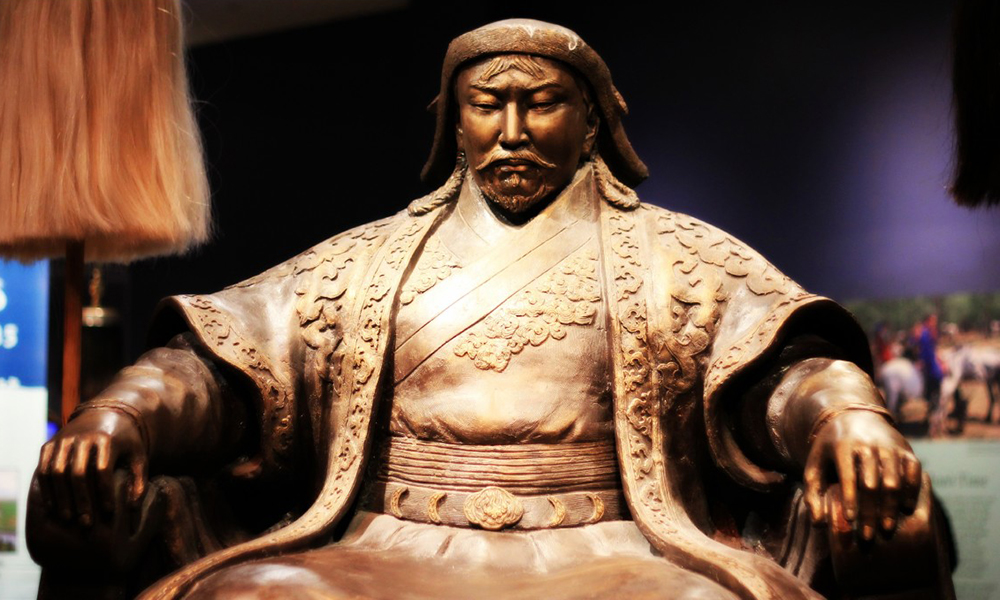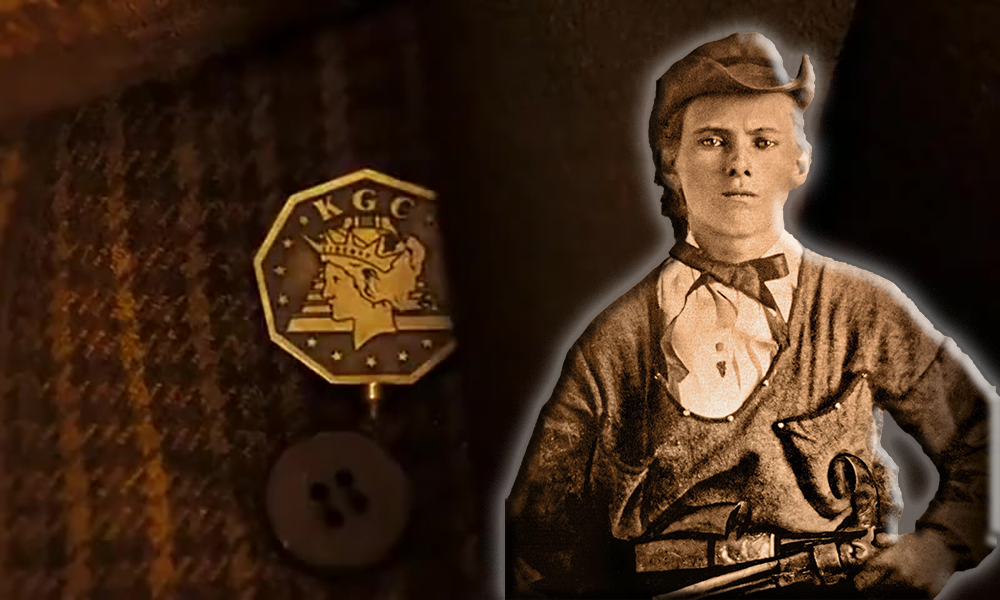Bedford County Virginia Lost Treasure
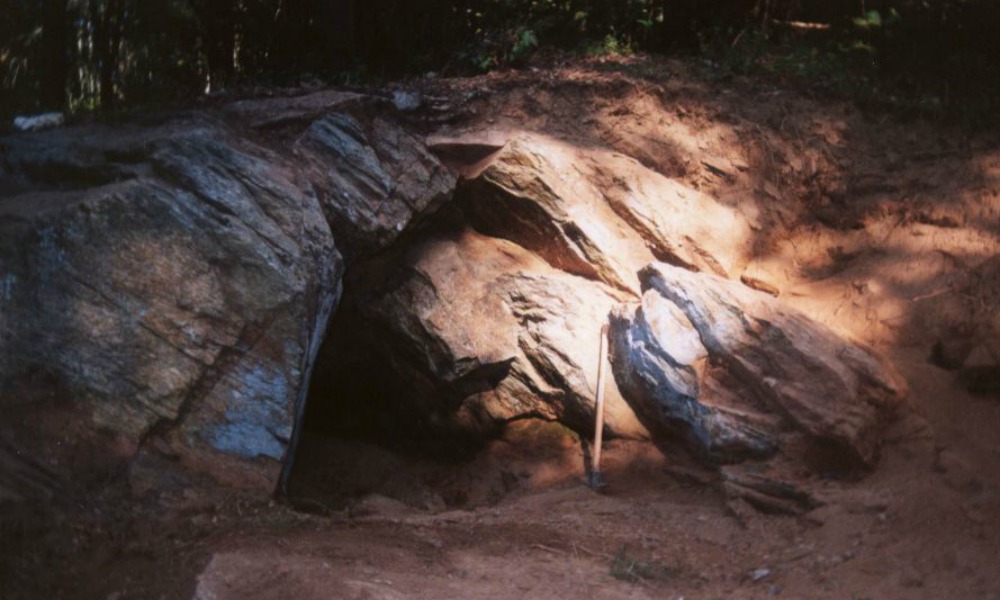
Bedford County Virginia Lost Treasure
Thomas Beale must have been a strange man. Legend has it that in 1816, Beale and a few men he was traveling with came into a large sum of gold and silverwhile mining somewhere in the Rocky Mountains. With such a large fortune, estimated to be around $63 million in today’s money, all of the men wanted to make sure their next of kin would get the money should they perish. So Beale wrote three ciphers. One described the exact location of the treasure, the second described the contents of the treasure, and the third was a list of the men’s names and their next of kin. Beale then entrusted Robert Morriss, a Lynchburg, Virginia innkeeper, with the safekeeping of a box containing the ciphers.
Morriss was supposed to wait 10 years before opening it. At this point, if Beale did not return for the box, a key to the cipher was supposed to be mailed to Morriss. But it never arrived. For years, Morriss and a friend tried to decode the three ciphers, but they could only manage the second cipher (the one describing the contents of the treasure).
The Codes
From an article publised in “The Guardian” 1999
……… codebreakers who are looking for the ultimate challenge might like to tackle an, as yet, uncracked code from the 19th century. Whoever unravels the so-called Beale ciphers will earn a reward of over £10 million in gold, silver and jewels.
The story of the Beale ciphers begins in January 1820, when a stranger by the name of Thomas J. Beale rode into the town of Lynchburg, Virginia, and checked himself into the Washington Hotel.
“In person, he was about six feet in height,” recalled Robert Morriss, the hotel owner, “with jet black eyes
and hair of the same colour, worn longer than was the style at the time. His form was symmetrical,and gave
evidence of unusual strength and activity; but his distinguishing feature was a dark and swarthy complexion,
as if much exposure to the sun and weather had thoroughly tanned and discoloured him; this, however,
did not detract from his appearance, and I thought him the handsomest man I had ever seen.”
Although Beale spent the rest of the winter in Lynchburg and was “extremely popular with every one, particularly the ladies,” he never spoke about his background, his family and the purpose for his visit. Then, at the end of March, he left as suddenly as he had arrived.
Beale returned two years later, and once again he spent the rest of the winter in Lynchburg and disappeared in the spring, but not before he entrusted Morriss with a locked iron box, which he said contained “papers of value and importance.” Morriss dutifully guarded the box, waiting for Beale to collect it, but the swarthy man of mystery did not return to Lynchburg. He disappeared without trace, never to be seen again.
Eventually, 23 years later in 1845, Morriss’s curiosity got the better of him and working on the assumption that Beale was dead, he cracked open the locked box. Inside he found a note written by Beale in plain English, and three sheets full of numbers. The note revealed the truth about Beale, the box, and the ciphers. In April 1817, almost three years prior to his first meeting with Morriss, Beale and twenty-nine others had embarked on a journey across America. After travelling through the rich hunting grounds of the Western plains, they arrived in Santa Fe, before heading north in search of buffalo. Then, according to Beale’s note, they struck lucky: “The party, encamped in a small ravine, were preparing their evening meal, when one of the men discovered in a cleft of the rocks something that had the appearance of gold. Upon showing it to the others it was pronounced to be gold, and much excitement was the natural consequence.”
The note went on to explain that Beale and his men mined the site for the next eighteen months, by which time they had accumulated a large quantity of gold, as well as some silver which was found nearby. In due course, they agreed that their new found wealth should be moved to a secure place, and decided to take it back home to Virginia, where they would hide it in a secret location. To reduce the weight, Beale traded some of the gold and silver for jewels, and in 1820 he travelled to Lynchburg, found a suitable location, and buried the treasure. It was on this occasion that he met Morriss for the first time.
When Beale left at the end of the winter, he rejoined his men, who had continued to work the mine during his absence. After another eighteen months, Beale revisited Lynchburg with even more to add to his stash. This time there was an additional reason for his trip. His companions were concerned that, in case of an accident to themselves, then the hidden treasure would not find its way to their relatives. Hence, Beale was instructed to find a reliable person, who could be confided in to carry out their wishes in the event of their sudden death, and Beale selected Morriss to be that person.
Upon reading the note, Morriss felt responsible for finding the treasure and passing it onto the relatives of the presumably dead men. Unfortunately, there was a problem. The description of the treasure, its location, and the list of the relatives had been encrypted, and had been transformed into the three sheets that contained nothing but numbers. Beale’s note said that the key required to decipher the sheets would be posted to Beale by a third party, but it never materialised, and so Morriss was forced to unscramble the three sheets from scratch. This task occupied his mind for the next twenty years, and ended in complete failure.
In 1862, at the age of 84, Morriss knew that he was coming to the end of his life, and realised that he had to share the secret of the Beale ciphers, otherwise any hope of carrying out Beale’s wishes would die with him. Morriss confided in a friend, but unfortunately the identity of this person remains a mystery. Only two things are known about Morriss’s friend. First, he published a pamphlet, which contains the entire Beale story, including the Beale ciphers and Morriss’s account of the events surrounding the mystery. Second, the anonymous pamphleteer made the first breakthrough in deciphering one of Beale’s cryptic papers.
The second Beale cipher, like the other two, contains about 800 numbers, beginning with the sequence; 115, 73, 24, 807, 37, … The pamphleteer guessed that each number corresponded to a word in the Declaration of Independence. For example, the first number in the sequence is 115 – the 115th letter of the Declaration is ‘instituted’, which begins with the letter I. Hence the first number, 115, represents the letter I. The second number in the sequence is 73 – the 73rd word in the Declaration is ‘hold’, which begins with the letter H. Hence, the second number, 73, represents the letter H.
The Opening of the “Declaration of Independence”
When1, in2 the3 course4 of5 human events it becomes necessary10 for one people to dissolve the political bands which have20 connected them with another, and to assume among the powers30 of the earth, the separate and equal
station to which40 the laws of nature and of nature’s God entitle them50, a decent respect to the opinions of mankind
requires that60 they should declare the causes which impel them to the70 separation. We hold these truths to be self-evident,
and that80 all men are created equal, that they are endowed by90 their Creator with certain inalienable rights, that among
these are100 life, liberty and the pursuit of happiness; That to secure110 these rights, governments are instituted among men.
By continuing this process, the pamphleteer revealed the following message from Beale:
“I have deposited in the county of Bedford, about four miles from Buford’s, in an excavation or vault, six feet below the surface of the ground, the following articles: … The deposit consists of two thousand nine hundred and twenty one pounds of gold and five thousand one hundred pounds of silver; also jewels, obtained in St. Louis in exchange for silver to save transportation … The above is securely packed in iron pots, with iron covers. The vault is roughly lined with stone, and the vessels rest on solid stone, and are covered with others …”
The successful decipherment indicated the value of the treasure – at least £10 million at today’s bullion prices. Unfortunately, using the Declaration of Independence as a key failed to unlock the other two Beale ciphers. In particular, the pamphleteer could not decipher the sheet of numbers that described the location of the treasure. Not surprisingly, once the pamphleteer knew the value of the treasure, he spent increasing amounts of time analysing the remaining Beale ciphers, but despite strenuous efforts he failed to make any progress. In 1885, he decided to unburden himself by publishing everything he knew, choosing to remain anonymous so as not to be pestered by eager treasure hunters.
Although a warehouse fire destroyed most of the pamphlets, those that survived aroused immediate interest. Among the most ardent treasure hunters attracted to the Beale ciphers were the Hart brothers, George and Clayton. They pored over the papers for decades, but Clayton Hart gave up in 1912, and George eventually abandoned hope in 1952. An even more persistent Beale fanatic has been Hiram Herbert, Jr., who first became interested in 1923 and who continued with his obsession right through to the 1970s. He, too, had nothing to show for his efforts. Professional cryptanalysts have also embarked on the Beale treasure trail. Herbert O. Yardley, who founded the U.S. Cipher Bureau (known as the American Black Chamber) at the end of World War I was intrigued by the Beale ciphers, as was Colonel William Friedman, the dominant figure in American codebreaking during the first half of the 20th century. While he was in charge of the Signal Intelligence Service, he made the Beale ciphers part of the training programme, because he believed the ciphers to be of “diabolical ingenuity, specifically designed to lure the unwary reader.” The Friedman archive, established after his death in 1969 at the George C. Marshall Research Centre, is frequently consulted by military historians, but by far the largest number of visitors are eager Beale devotees. More recently, one of the leading figures has been Carl Hammer, retired director of computer science at Sperry Univac and one of the pioneers of computerised codebreaking. According to Hammer, the Beale ciphers have occupied: “at least 10 % of the best cryptanalytic minds in the country. And not a dime of this effort should be begrudged. The work – even the lines that have led into blind alleys – has more than paid for itself in advancing and refining computer research.”
The lack of success means that we cannot exclude the possibility that the Beale ciphers are an elaborate hoax. Sceptics have searched for inconsistencies and flaws in the Beale story. For example, Beale’s letter enclosed in the box with the ciphers was supposedly written in 1822, but it contains the word “stampede”, which was not seen in print until 1844. However, it is quite possible that the word was in common usage in the wild west at a much earlier date, and Beale could have encountered it on his travels.
Evidence in favour of the probity of the ciphers comes from historical research, which can be used to verify the story of Thomas Beale. Peter Viemeister, a local historian who showed me some of the places where treasure hunters have already looked, searched for evidence to prove that Thomas Beale existed. Using the census of 1790 and other documents, Viemeister has identified several Thomas Beales, who were born in Virginia and whose backgrounds fit the few known facts. Most of the details we have about Beale concern his trip to Sante Fe, and there is evidence to corroborate his discovery of gold. For example, Jacob Fowler, who explored the American southwest in 1821-22, noted in his journal that the Pawnee and Crowe tribes “speake on the most friendly terms of the White men and Say they are about 35 in number” – this number is similar to the size of Beale’s party. Also, there is a Cheyenne legend dating from around 1820 which tells of gold and silver being taken from the West and buried in Eastern Mountains.
Consequently, the tale of the Beale ciphers continues to enthral codebreakers and treasure hunters. However, anybody who might be tempted to take up the challenge of the Beale ciphers should take heed of some words of caution given by the author of the pamphlet:“Before giving the papers to the public, I would give them a little advice, acquired by bitter experience. It is, to devote only such time as can be spared from your legitimate business to the task, and if you can spare no time, let the matter alone … Never, as I have done, sacrifice your own and your family’s interests to what may prove an illusion; but, as I have already said, when your day’s work is done, and you are comfortably seated by your good fire, a short time devoted to the subject can injure no one, and may bring its reward.”
The Beale Codes
THE LOCALITY OF THE VAULT.
71, 194, 38, 1701, 89, 76, 11, 83, 1629, 48, 94, 63, 132, 16, 111, 95, 84, 341, 975, 14, 40, 64, 27, 81, 139, 213, 63, 90, 1120, 8, 15, 3, 126, 2018, 40, 74, 758, 485, 604, 230, 436, 664, 582, 150, 251, 284, 308, 231, 124, 211, 486, 225, 401, 370, 11, 101, 305, 139, 189, 17, 33, 88, 208, 193, 145, 1, 94, 73, 416, 918, 263, 28, 500, 538, 356, 117, 136, 219, 27, 176, 130, 10, 460, 25, 485, 18, 436, 65, 84, 200, 283, 118, 320, 138, 36, 416, 280, 15, 71, 224, 961, 44, 16, 401, 39, 88, 61, 304, 12, 21, 24, 283, 134, 92, 63, 246, 486, 682, 7, 219, 184, 360, 780, 18, 64, 463, 474, 131, 160, 79, 73, 440, 95, 18, 64, 581, 34, 69, 128, 367, 460, 17, 81, 12, 103, 820, 62, 116, 97, 103, 862, 70, 60, 1317, 471, 540, 208, 121, 890, 346, 36, 150, 59, 568, 614, 13, 120, 63, 219, 812, 2160, 1780, 99, 35, 18, 21, 136, 872, 15, 28, 170, 88, 4, 30, 44, 112, 18, 147, 436, 195, 320, 37, 122, 113, 6, 140, 8, 120, 305, 42, 58, 461, 44, 106, 301, 13, 408, 680, 93, 86, 116, 530, 82, 568, 9, 102, 38, 416, 89, 71, 216, 728, 965, 818, 2, 38, 121, 195, 14, 326, 148, 234, 18, 55, 131, 234, 361, 824, 5, 81, 623, 48, 961, 19, 26, 33, 10, 1101, 365, 92, 88, 181, 275, 346, 201, 206, 86, 36, 219, 324, 829, 840, 64, 326, 19, 48, 122, 85, 216, 284, 919, 861, 326, 985, 233, 64, 68, 232, 431, 960, 50, 29, 81, 216, 321, 603, 14, 612, 81, 360, 36, 51, 62, 194, 78, 60, 200, 314, 676, 112, 4, 28, 18, 61, 136, 247, 819, 921, 1060, 464, 895, 10, 6, 66, 119, 38, 41, 49, 602, 423, 962, 302, 294, 875, 78, 14, 23, 111, 109, 62, 31, 501, 823, 216, 280, 34, 24, 150, 1000, 162, 286, 19, 21, 17, 340, 19, 242, 31, 86, 234, 140, 607, 115, 33, 191, 67, 104, 86, 52, 88, 16, 80, 121, 67, 95, 122, 216, 548, 96, 11, 201, 77, 364, 218, 65, 667, 890, 236, 154, 211, 10, 98, 34, 119, 56, 216, 119, 71, 218, 1164, 1496, 1817, 51, 39, 210, 36, 3, 19, 540, 232, 22, 141, 617, 84, 290, 80, 46, 207, 411, 150, 29, 38, 46, 172, 85, 194, 39, 261, 543, 897, 624, 18, 212, 416, 127, 931, 19, 4, 63, 96, 12, 101, 418, 16, 140, 230, 460, 538, 19, 27, 88, 612, 1431, 90, 716, 275, 74, 83, 11, 426, 89, 72, 84, 1300, 1706, 814, 221, 132, 40, 102, 34, 868, 975, 1101, 84, 16, 79, 23, 16, 81, 122, 324, 403, 912, 227, 936, 447, 55, 86, 34, 43, 212, 107, 96, 314, 264, 1065, 323, 428, 601, 203, 124, 95, 216, 814, 2906, 654, 820, 2, 301, 112, 176, 213, 71, 87, 96, 202, 35, 10, 2, 41, 17, 84, 221, 736, 820, 214, 11, 60, 760
The following paper is marked “3″ in the series, and as we are informed, contains the names of Beale’s associates, who are joint owners of the fund deposited, together with the names of the nearest relatives of each party, with their several places of residence.
NAMES AND RESIDENCES.
317, 8, 92, 73, 112, 89, 67, 318, 28, 96,107, 41, 631, 78, 146, 397, 118, 98, 114, 246, 348, 116, 74, 88, 12, 65, 32, 14, 81, 19, 76, 121, 216, 85, 33, 66, 15, 108, 68, 77, 43, 24, 122, 96, 117, 36, 211, 301, 15, 44, 11, 46, 89, 18, 136, 68, 317, 28, 90, 82, 304, 71, 43, 221, 198, 176, 310, 319, 81, 99, 264, 380, 56, 37, 319, 2, 44, 53, 28, 44, 75, 98, 102, 37, 85, 107, 117, 64, 88, 136, 48, 151, 99, 175, 89, 315, 326, 78, 96, 214, 218, 311, 43, 89, 51, 90, 75, 128, 96, 33, 28, 103, 84, 65, 26, 41, 246, 84, 270, 98, 116, 32, 59, 74, 66, 69, 240, 15, 8, 121, 20, 77, 89, 31, 11, 106, 81, 191, 224, 328, 18, 75, 52, 82, 117, 201, 39, 23, 217, 27, 21, 84, 35, 54, 109, 128, 49, 77, 88, 1, 81, 217, 64, 55, 83, 116, 251, 269, 311, 96, 54, 32, 120, 18, 132, 102, 219, 211, 84, 150, 219, 275, 312, 64, 10, 106, 87, 75, 47, 21, 29, 37, 81, 44, 18, 126, 115, 132, 160, 181, 203, 76, 81, 299, 314, 337, 351, 96, 11, 28, 97, 318, 238, 106, 24, 93, 3, 19, 17, 26, 60, 73, 88, 14, 126, 138, 234, 286, 297, 321, 365, 264, 19, 22, 84, 56, 107, 98, 123, 111, 214, 136, 7, 33, 45, 40, 13, 28, 46, 42, 107, 196, 227, 344, 198, 203, 247, 116, 19, 8, 212, 230, 31, 6, 328, 65, 48, 52, 59, 41, 122, 33, 117, 11, 18, 25, 71, 36, 45, 83, 76, 89, 92, 31, 65, 70, 83, 96, 27, 33, 44, 50, 61, 24, 112, 136, 149, 176, 180, 194, 143, 171, 205, 296, 87, 12, 44, 51, 89, 98, 34, 41, 208, 173, 66, 9, 35, 16, 95, 8, 113, 175, 90, 56, 203, 19, 177, 183, 206, 157, 200, 218, 260, 291, 305, 618, 951, 320, 18, 124, 78, 65, 19, 32, 124, 48, 53, 57, 84, 96, 207, 244, 66, 82, 119, 71, 11, 86, 77, 213, 54, 82, 316, 245, 303, 86, 97, 106, 212, 18, 37, 15, 81, 89, 16, 7, 81, 39, 96, 14, 43, 216, 118, 29, 55, 109, 136, 172, 213, 64, 8, 227, 304, 611, 221, 364, 819, 375, 128, 296, 1, 18, 53, 76, 10, 15, 23, 19, 71, 84, 120, 134, 66, 73, 89, 96, 230, 48, 77, 26, 101, 127, 936, 218, 439, 178, 171, 61, 226, 313, 215, 102, 18, 167, 262, 114, 218, 66, 59, 48, 27, 19, 13, 82, 48, 162, 119, 34, 127, 139, 34, 128, 129, 74, 63, 120, 11, 54, 61, 73, 92, 180, 66, 75, 101, 124, 265, 89, 96, 126, 274, 896, 917, 434, 461, 235, 890, 312, 413, 328, 381, 96, 105, 217, 66, 118, 22, 77, 64, 42, 12, 7, 55, 24, 83, 67, 97, 109, 121, 135, 181, 203, 219, 228, 256, 21, 34, 77, 319, 374, 382, 675, 684, 717, 864, 203, 4, 18, 92, 16, 63, 82, 22, 46, 55, 69, 74, 112, 134, 186, 175, 119, 213, 416, 312, 343, 264, 119, 186, 218, 343, 417, 845, 951, 124, 209, 49, 617, 856, 924, 936, 72, 19, 28, 11, 35, 42, 40, 66, 85, 94, 112, 65, 82, 115, 119, 236, 244, 186, 172, 112, 85, 6, 56, 38, 44, 85, 72, 32, 47, 63, 96, 124, 217, 314, 319, 221, 644, 817, 821, 934, 922, 416, 975, 10, 22, 18, 46, 137, 181, 101, 39, 86, 103, 116, 138, 164, 212, 218, 296, 815, 380, 412, 460, 495, 675, 820, 952
The letter, or paper, so often alluded to, and marked “2,” describes the contents of the treasure……..
115, 73, 24, 807, 37, 52, 49, 17, 31, 62, 647, 22, 7, 15, 140, 47, 29, 107, 79, 84, 56, 239, 10, 26, 811, 5, 196, 308, 85, 52, 160, 136, 59, 211, 36, 9, 46, 316, 554, 122, 106, 95, 53, 58, 2, 42, 7, 35, 122, 53, 31, 82, 77, 250, 196, 56, 96, 118, 71, 140, 287, 28, 353, 37, 1005, 65, 147, 807, 24, 3, 8, 12, 47, 43, 59, 807, 45, 316, 101, 41, 78, 154, 1005, 122, 138, 191, 16, 77, 49, 102, 57, 72, 34, 73, 85, 35, 371, 59, 196, 81, 92, 191, 106, 273, 60, 394, 620, 270, 220, 106, 388, 287, 63, 3, 6, 191, 122, 43, 234, 400, 106, 290, 314, 47, 48, 81, 96, 26, 115, 92, 158, 191, 110, 77, 85, 197, 46, 10, 113, 140, 353, 48, 120, 106, 2, 607, 61, 420, 811, 29, 125, 14, 20, 37, 105, 28, 248, 16, 159, 7, 35, 19, 301, 125, 110, 486, 287, 98, 117, 511, 62, 51, 220, 37, 113, 140, 807, 138, 540, 8, 44, 287, 388, 117, 18, 79, 344, 34, 20, 59, 511, 548, 107, 603, 220, 7, 66, 154, 41, 20, 50, 6, 575, 122, 154, 248, 110, 61, 52, 33, 30, 5, 38, 8, 14, 84, 57, 540, 217, 115, 71, 29, 84, 63, 43, 131, 29, 138, 47, 73, 239, 540, 52, 53, 79, 118, 51, 44, 63, 196, 12, 239, 112, 3, 49, 79, 353, 105, 56, 371, 557, 211, 505, 125, 360, 133, 143, 101, 15, 284, 540, 252, 14, 205, 140, 344, 26, 811, 138, 115, 48, 73, 34, 205, 316, 607, 63, 220, 7, 52, 150, 44, 52, 16, 40, 37, 158, 807, 37, 121, 12, 95, 10, 15, 35, 12, 131, 62, 115, 102, 807, 49, 53, 135, 138, 30, 31, 62, 67, 41, 85, 63, 10, 106, 807, 138, 8, 113, 20, 32, 33, 37, 353, 287, 140, 47, 85, 50, 37, 49, 47, 64, 6, 7, 71, 33, 4, 43, 47, 63, 1, 27, 600, 208, 230, 15, 191, 246, 85, 94, 511, 2, 270, 20, 39, 7, 33, 44, 22, 40, 7, 10, 3, 811, 106, 44, 486, 230, 353, 211, 200, 31, 10, 38, 140, 297, 61, 603, 320, 302, 666, 287, 2, 44, 33, 32, 511, 548, 10, 6, 250, 557, 246, 53, 37, 52, 83, 47, 320, 38, 33, 807, 7, 44, 30, 31, 250, 10, 15, 35, 106, 160, 113, 31, 102, 406, 230, 540, 320, 29, 66, 33, 101, 807, 138, 301, 316, 353, 320, 220, 37, 52, 28, 540, 320, 33, 8, 48, 107, 50, 811, 7, 2, 113, 73, 16, 125, 11, 110, 67, 102, 807, 33, 59, 81, 158, 38, 43, 581, 138, 19, 85, 400, 38, 43, 77, 14, 27, 8, 47, 138, 63, 140, 44, 35, 22, 177, 106, 250, 314, 217, 2, 10, 7, 1005, 4, 20, 25, 44, 48, 7, 26, 46, 110, 230, 807, 191, 34, 112, 147, 44, 110, 121, 125, 96, 41, 51, 50, 140, 56, 47, 152, 540, 63, 807, 28, 42, 250, 138, 582, 98, 643, 32, 107, 140, 112, 26, 85, 138, 540, 53, 20, 125, 371, 38, 36, 10, 52, 118, 136, 102, 420, 150, 112, 71, 14, 20, 7, 24, 18, 12, 807, 37, 67, 110, 62, 33, 21, 95, 220, 511, 102, 811, 30, 83, 84, 305, 620, 15, 2, 10, 8, 220, 106, 353, 105, 106, 60, 275, 72, 8, 50, 205, 185, 112, 125, 540, 65, 106, 807, 138, 96, 110, 16, 73, 33, 807, 150, 409, 400, 50, 154, 285, 96, 106, 316, 270, 205, 101, 811, 400, 8, 44, 37, 52, 40, 241, 34, 205, 38, 16, 46, 47, 85, 24, 44, 15, 64, 73, 138, 807, 85, 78, 110, 33, 420, 505, 53, 37, 38, 22, 31, 10, 110, 106, 101, 140, 15, 38, 3, 5, 44, 7, 98, 287, 135, 150, 96, 33, 84, 125, 807, 191, 96, 511, 118, 40, 370, 643, 466, 106, 41, 107, 603, 220, 275, 30, 150, 105, 49, 53, 287, 250, 208, 134, 7, 53, 12, 47, 85, 63, 138, 110, 21, 112, 140, 485, 486, 505, 14, 73, 84, 575, 1005, 150, 200, 16, 42, 5, 4, 25, 42, 8, 16, 811, 125, 160, 32, 205, 603, 807, 81, 96, 405, 41, 600, 136, 14, 20, 28, 26, 353, 302, 246, 8, 131, 160, 140, 84, 440, 42, 16, 811, 40, 67, 101, 102, 194, 138, 205, 51, 63, 241, 540, 122, 8, 10, 63, 140, 47, 48, 140, 288
These Ciphers have been analyzed by the CIA which resulted in some interesting results.
First, the first cipher decoded using the Declaration of Independence, had several mistakes which were deciphered correctly leading the CIA to determine that the person who decoded the cipher to be in possession of the document that had the same mistakes.
Second, when using the same Declaration to attempt to decode the cipher that contained the location, it revealed a 26 letter sequence a-z in order. This led the CIA to determine that the writer of the cipher, started using the same number from the other cipher.
They concluded that this treasure was a hoax by the publisher trying to sell copy’s of the pamphlet.
Search Rating: D
Reward Rating: B
Chance Treasure Exist’s: D

